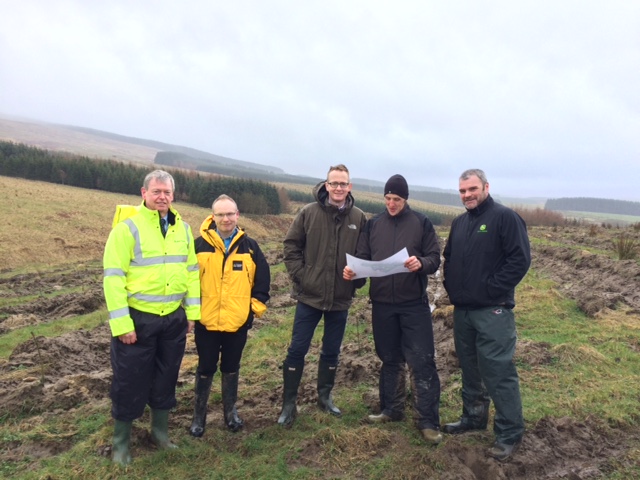John Lamont MSP visited Larriston Farm to witness the planting of over 1 million trees as part of a major new productive forest.
Also in attendance was Hamish Macleod of BSW Timber who explained the importance of the investment to local industry.
He said: “BSW Timber is the UK’s leading sawmiller. A Scottish-based family business, we employ over 1,200 people. We need new forests like this to ensure a sustainable supply of timber for future generations.
“As a company, we are working to seek opportunities for better support and understanding for forestry in the wider land use context post Brexit and look forward to a thriving forestry and timber sector.”
John Lamont MSP added: “I was delighted to pay a visit to the Tilhill Forestry managed Larriston site in Liddesdale. Forestry is an important contributor to the local economy in the Borders and parent company BSW Timber, based in the Borders, is a major employer.
“It was really useful to hear a bit more about the whole process from forest to timber products and to hear a bit about BSW’s plans for the future. I know that many businesses in the Borders, particularly those who either trade overseas or compete with imports, are facing a challenging time in light of Brexit and the possibility of a second independence referendum. Businesses have had to deal with uncertain times recently and politicians of all parties need to do all they can to help the economy return to stability as soon as possible.”
The site is being planted by Tilhill Forestry and Investment and Property Director Jason Sinden explained the economics:
“This type of ground was traditionally used for raising tough breeds of sheep, such as Blackface. However, in recent years, there has been a shift in production systems and we are now finding that many sheep farmers are raising their sheep on the lower ground. Because of this, increasing amounts of hill ground are becoming available for forestry.”
“We can grow very high yields of timber on this type of ground and supply the timber processing mills throughout the region. When you work out the figures, it is a very attractive investment and, according to independent studies, it creates more jobs than alternative agricultural systems.”
Tilhill District Manager Eddie Addis, who is responsible for implementing the project, said: “A huge amount of effort goes into the design and implementation of new forests such as this. As well as wildlife, we have taken great care to protect archaeology and the woodland is designed to help manage the whole water catchment. You can’t hide a forest of this scale, but it has been carefully designed to fit-in with the landscape.”
The ground preparation is being carried out by contractor Simon Richardson, who has developed a range of purpose-built machines to cope with different soil conditions and slopes.



